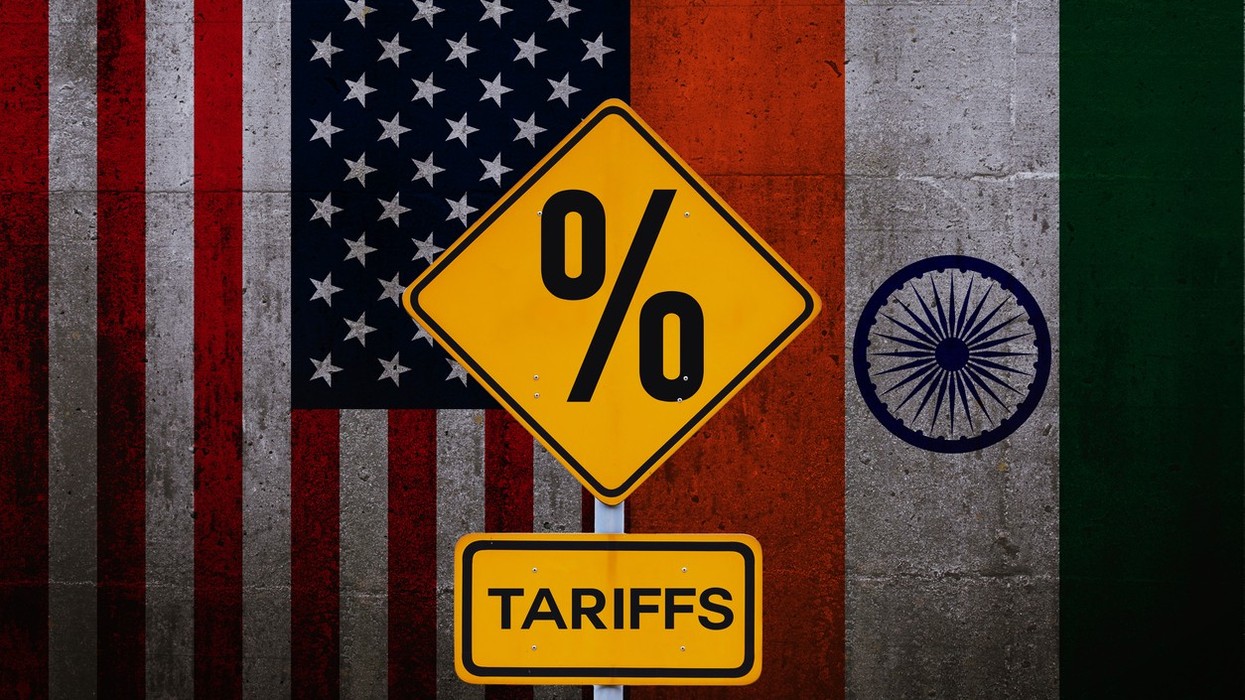The United States government has recently imposed sanctions on eight India-based companies and five Indian nationals, targeting their involvement in the trade of Iranian oil, petroleum products, and petrochemicals. This move forms part of the Trump administration's ongoing "maximum pressure campaign" aimed at curbing Tehran's energy exports, which serve as a critical source of revenue for the Iranian regime.
Scope of the sanctions and entities involved
Announced on July 30, 2025, by the US Department of State and the Treasury’s Office of Foreign Assets Control (OFAC), these sanctions designate 20 global entities and identify 10 vessels as blocked property, effectively freezing their assets under US jurisdiction and barring American entities and individuals from conducting business with them.
Among the Indian firms sanctioned, six appear on both the State Department and OFAC lists:
- Kanchan Polymers (Chennai-based)
- Alchemical Solutions (also known as Chemform Trading), Mumbai-based, leading with over $84 million worth of Iranian petrochemical imports in 2024
- Ramniklal S Gosalia and Company, Mumbai-based
- Jupiter Dye Chem, Mumbai-based
- Global Industrial Chemicals, Mumbai-based
- Persistent Petrochem, Mumbai-based
These companies imported Iranian petrochemicals, including methanol, polyethylene, toluene, and other products, in large quantities from early 2024 into 2025. Two other entities—Ensa Ship Management (Mumbai) and Shreeji Gems (Surat)—feature on the OFAC list for their alleged links to the shipping network controlled by Mohammad Hossein Shamkhani, the son of a senior Iranian political advisor.
Indian nationals sanctioned
The OFAC also named five Indian nationals associated with this trade and shipping network:
- Mohamed Rafeek Habibullah (UAE-based), designated for operating in Iran’s petroleum sector
- Jacob Kurian (Nigeria-based) and Anil Kumar Panackal Narayanan Nair (India-based), shareholders and directors of Neo Shipping, linked to vessels managed for Shamkhani’s network
- Pankaj Nagjibhai Patel (UAE-based), executive in multiple shipping companies within the network and director of Shreeji Gems
- Elyas Jafer Tambe (UAE-based), associated with several shipping companies tied to Shamkhani’s operations
The sanctions are grounded in Executive Order 13846, which reimposes sanctions targeting Iran's energy sector following the US withdrawal from the 2015 nuclear deal. The State Department stated that Iran continues to "fuel conflict in the Middle East to fund its destabilizing activities," and these measures aim to cut off revenue streams used to support terrorism abroad and oppress the Iranian people.
US Treasury Secretary Scott Bessent remarked that the Shamkhani family's shipping empire "leverages corruption through political influence to operate a massive fleet transporting oil and petrochemical products from Iran and Russia," generating tens of billions in illicit profits while shielding the regime’s dangerous behavior.
Broader geopolitical and economic context
This latest sanction round comes shortly after the US imposed a 25% tariff on Indian imports, part of escalating US pressure on India amid its energy and trade ties with Iran and Russia. India does not currently import crude oil from Iran, adhering to previous US sanctions, but these targeted companies reportedly engaged in trading Iranian petrochemical products despite restrictions.
Historically, Indian companies involved in shipping or trading Iranian energy products have faced US sanctions—most recently including firms involved in transporting liquefied natural gas from Russia’s Arctic LNG 2 project, itself under US sanctions.
India's response and Iran’s reaction
India has yet to issue a detailed public response to the most recent US action. Meanwhile, the Iranian embassy in India condemned the sanctions on social media, accusing the United States of "weaponizing the economy" and violating international law by imposing coercive, discriminatory sanctions on sovereign nations such as Iran and India. Tehran framed these sanctions as a tactic of "economic imperialism" and framed resistance as supporting a "stronger Global South."
Impact and penalties
The designated Indian firms now have all US-based assets frozen, and American citizens and businesses are prohibited from engaging with them. Additionally, entities owned 50% or more by these companies are subject to the same restrictions. The rotating sanctions regime reflects Washington’s intent to disrupt the global energy trade networks that sustain the Iranian regime financially.
The US sanctions underscore a highly strategic and punitive effort targeting Iran’s petroleum and petrochemical trade networks, extending pressure not only on Tehran but also on international firms and individuals who facilitate these transactions.
The sanctioning of Indian companies and nationals illustrates Washington’s reach and determination to enforce restrictions amid complex global trade relationships. These measures aim to diminish Iran’s capacity to fund destabilizing activities in the Middle East and exert control over its global economic influence.













 Let’s stop shaming Genzfor switching jobsI see a lot of ‘career gurus’shaming 22-year-olds for switching jobs every year.But isn’t that exactly what the youth should be doing? 🤔Early in our… | Anupam Mittal | 561 comments
Let’s stop shaming Genzfor switching jobsI see a lot of ‘career gurus’shaming 22-year-olds for switching jobs every year.But isn’t that exactly what the youth should be doing? 🤔Early in our… | Anupam Mittal | 561 comments 

